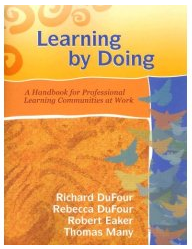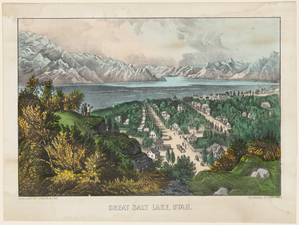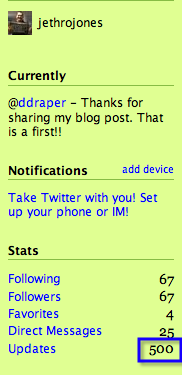Meeting the DuFours!
Friday, March 28, 2008 by jethrojones

Last week my principal came into my room to ask me if I would be interested in attending a Principal's Academy conference with him where Rick and Becky DuFour would be speaking. For the uninitiated, Rick and Becky DuFour are the big names in Professional Learning Communities (PLC). A PLC is a collaborative community of school personnel that works together to ensure that not only does every child learn, but also that when they don't learn, there is a systematic process in place to help them learn. Aside from technology integration in schools, this is what education should be all about. I would even say that if I had to choose between the two, I would take PLCs without even thinking about. When I served as director of Academic Activities at BYU-Idaho, I started on this path. Though I didn't have the same words for these ideas way back then, the idea of a PLC and collaboration amongst teachers is what pushed me over the edge to become a teacher. If you would like more info about PLCs, please go to AllThingsPLC.info.
Rick DuFour has a great sense of humor, and it showed in his book, and in this presentation today. He jumped into different accents on numerous occasions and told humorous anecdotes to get his point across. I would try to reproduce one verbatim here, but I would only butcher it, and if I can find a recording or even the written anecdote, I will certainly post it.
Briefly, he talked about an eye surgeon giving his sister a painful and dangerous operation to fix her vision that would take a year to complete for both eyes. Then he wanted his eyes fixed just 7 years ago. The doctor had Lasik eye surgery by then and said he would be zapped a couple times with lasers, and then be at 20/20 vision in just 72 hours. DuFour said that if the doctor had done the same procedure that was done to his sister, he probably could have sued him for malpractice, since the technology and skills and best practices had been discovered by this time. He likened that to teaching: the research shows that collaborative teams show significant gains in student achievement--as a teacher, do not commit malpractice by not doing what research shows is the best thing to do to help kids learn.
Here are the Big ROCKS that I got from the meeting today:
- Teachers need time to stop and think. (Much of the following will come if teachers can actually stop and think about what they are doing.)
- What we teach is the same across our grade level team
- How we teach it is and must be individual
- Intended curriculum is what the state (or other body) wants us to teach
- Implemented curriculum is what actually gets taught. There is a difference!!!
- Teachers need to commit to being actively involved and doing what needs to be done in a PLC. (In the words of my principal, "we aren't just going to have people 'mail it in.'"
- Say NO to averages
- Extra help and tutoring for struggling students is no longer optional (build it in to the time they are at school. No more after-school tutoring! AMEN!)
- Celebrating is like voting: do them both early and often.
- "The one thing leaders of any organization must know to be effective is the importance of clarity--communicating clearly and consistently:
- the purpose of the organization,
- the primary clients it serves
- the future it is creating
- the indicators of progress it will track, and
- the specific actions members can take immediately to achieve its long-term purpose and short-term goals." -Marcus Buckingham
Yes, I will.
Have a Good Life.











 Facebook/Jethro
Facebook/Jethro Linkedin/Jethro Jones
Linkedin/Jethro Jones Twitter/jethrojones
Twitter/jethrojones YouTube/mrjoneseng
YouTube/mrjoneseng Del.icio.us/jethrojones
Del.icio.us/jethrojones Wikipedia/mrjoneseng
Wikipedia/mrjoneseng GMail/Jethro
GMail/Jethro